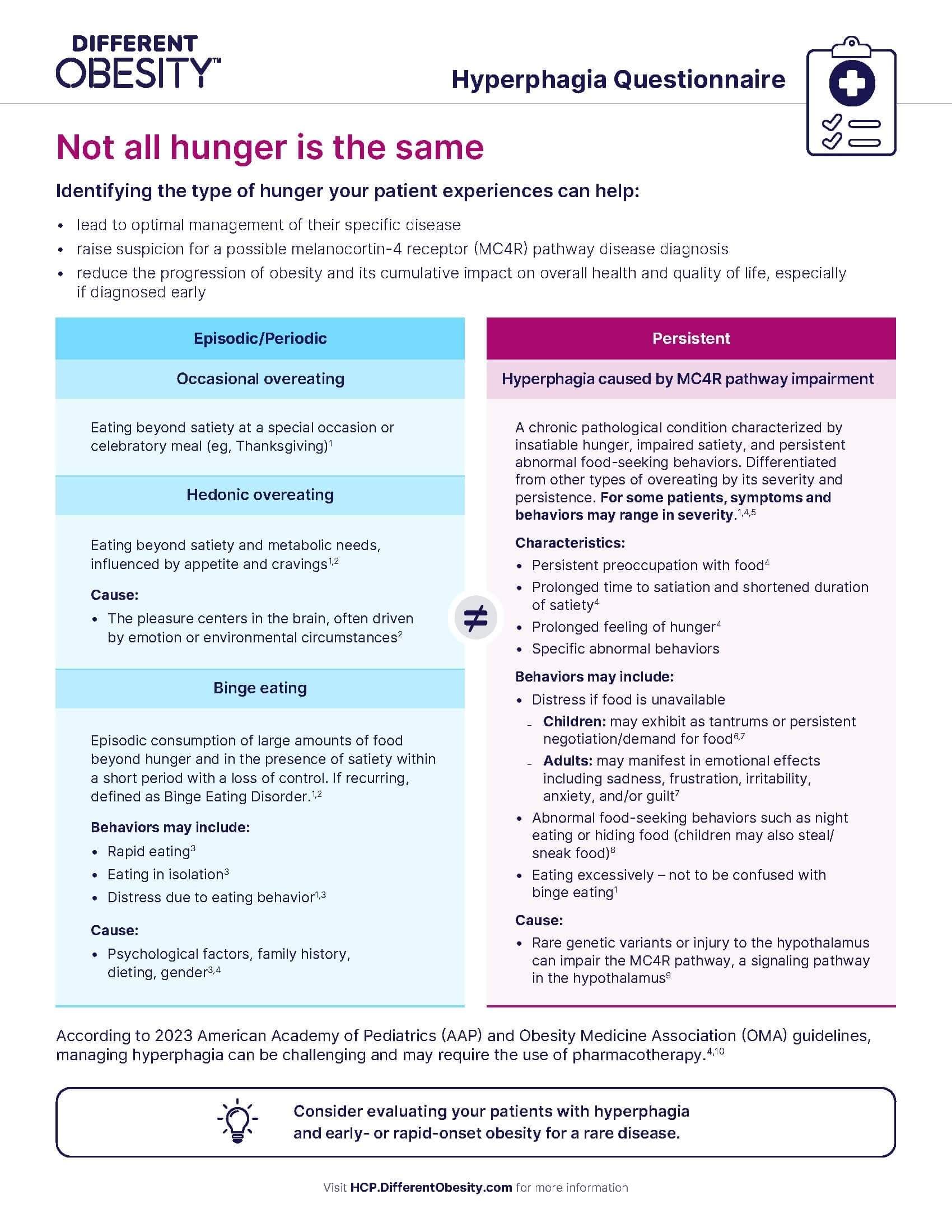Monogenic Obesity
Additional diseases
Understand the differences among rare genetic diseases that cause obesity
True prevalence of rare genetic diseases that cause obesity, including diseases caused by melanocortin-4 receptor (MC4R) pathway impairment, is unknown. Low awareness results in a lack of suspected cases, and without the suspicion of a potential deficiency, genetic testing is not often pursued.1
SH2B1 deficiency
SH2B adaptor protein 1 (SH2B1) deficiency is a disease caused by variants in the SH2B1 gene and 16p11.2 chromosomal deletions, which both play a role in the MC4R pathway.2,3
- The SH2B1 gene encodes for the adaptor protein SH2B1
- SH2B1 enhances activation of the leptin receptor (LEPR) downstream signaling pathways through Janus kinase 2 (JAK2) activation
- Impaired SH2B1 activity/expression leads to insufficient LEPR activity
Signs and symptoms
Signs and symptoms can include2,4:
- Hyperphagia
- Early-onset, severe obesity
- Hyperinsulinemia and insulin resistance
- Reduced adult final height
- Leptin resistance
Genetic inheritance4
SH2B1 deficiency is inherited in an autosomal dominant* manner.
Diagnosis
Diagnosis of SH2B1 deficiency may be suspected by clinical presentation of the disease and confirmed via genetic testing.
SRC1 deficiency
Steroid receptor coactivator-1 (SRC1) deficiency is a disease caused by variants in the nuclear receptor coactivator 1 (NCOA1) gene, which plays a role in the MC4R pathway.5
- The NCOA1 gene encodes for the transcriptional coactivator SRC1
- SRC1 signaling is required for proper leptin signaling
- The SRC1 protein modulates the expression of proopiomelanocortin (POMC)
Signs and symptoms
Signs and symptoms can include5:
- Hyperphagia
- Early-onset, severe obesity
- Hyperleptinemia
- Hyperinsulinemia and insulin resistance
Genetic inheritance6
SRC1 deficiency is inherited in an autosomal dominant† manner.
Diagnosis
Diagnosis of SRC1 deficiency may be suspected by clinical presentation of the disease and confirmed via genetic testing.
Downloadable
Do you suspect your patient may have an MC4R pathway disease? Use this questionnaire to identify hyperphagia in your patients with early-onset obesity.
Genetic testing through the Uncovering Rare Obesity® program is available for eligible patients. Visit UncoveringRareObesity.com
